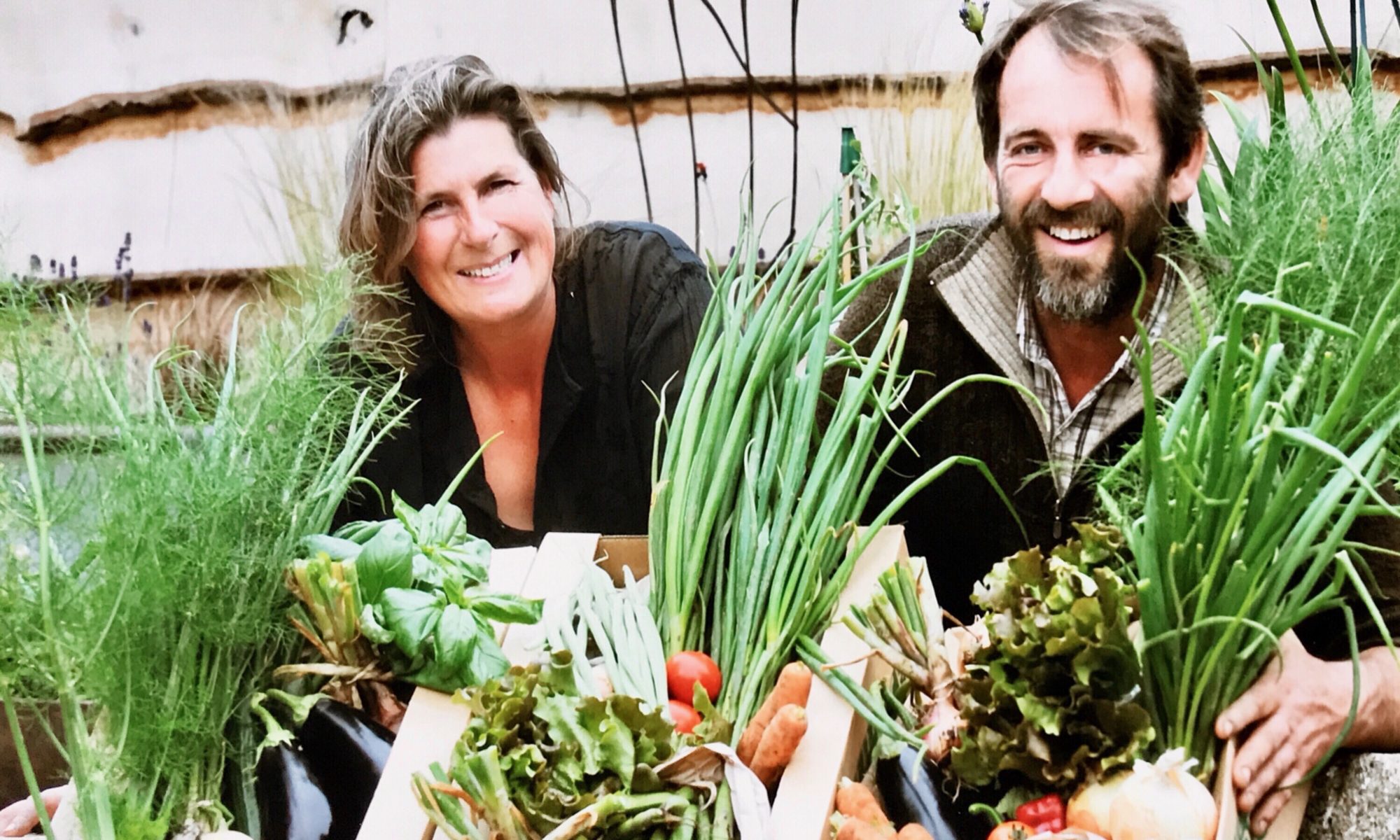 Veg Out was formed by Debbie and Howard Smith in 1996, and we’ve been delivering our organic veg box to customers every week since then. Starting on a set of allotments we realised that a box scheme was a viable way of making a living, selling direct to customers locally all year round.
Veg Out was formed by Debbie and Howard Smith in 1996, and we’ve been delivering our organic veg box to customers every week since then. Starting on a set of allotments we realised that a box scheme was a viable way of making a living, selling direct to customers locally all year round.
Organic veg box
With Howard’s background in farming and horticulture, and Debbie’s in gardening and floristry, we set up the business and registered land with the Soil Association. Our first ventures included cattle and sheep, but it was vegetable growing (using the valuable by-product from cows) that went on to be the organic veg box mainstay of the business. We rented land in Birdham, and in 2000 took on just over an acre of glasshouses. This we converted to organic status by 2002.
The following year we expanded our outdoor operation by renting 6 acres of land at Rookery Farm in Flansham, near Bognor Regis. This land was already organic as the land is used principally for free range organic egg production. We fit into the rotation following behind blocks of land where chickens have roamed. All the time we were renting, we yearned to have a holding of our own.
This became a reality when we purchased Three Oaks Nursery in Sidlesham, 2.5 acres of land with 0.3 acres of glasshouse. This became fully organic in 2008, and in 2011 we moved out of our house in Hunston and into a mobile home on site. Planning permission was granted in 2013 and in spring 2016 we finally moved into our new house 20 years after we started.

